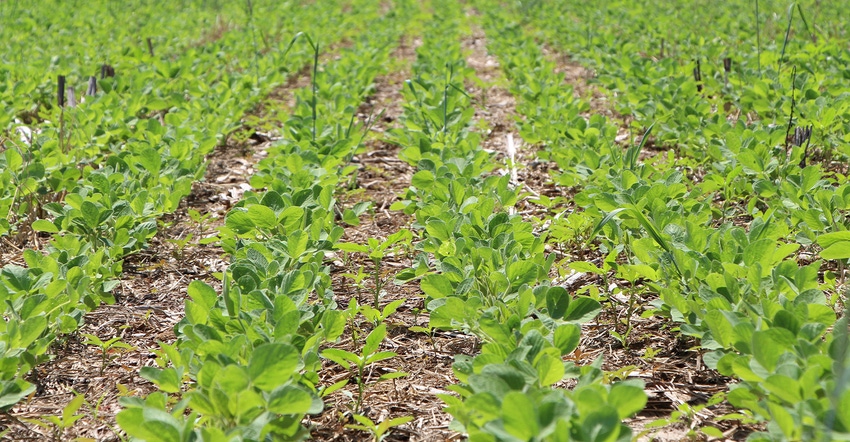
NemaStrike will not be a tool for farmers fighting nematodes in 2020. The product continues to cause skin rashes on those handling it, prompting Bayer company officials to err on the side of human safety.
This isn’t the first time the product has been shelved. The EPA approved NemaStrike in 2017. That same year, Monsanto stopped plans to launch NemaStrike across up to 8 million U.S. crop acres in 2018, when reports of skin irritation from those handling NemaStrike or seed treated with the product surfaced.
Problem products
Germany-based Bayer found itself with NemaStrike during its $63 billion acquisition of Monsanto last year. The technology, designed for corn, cotton and soybeans, defends plants from attacks by nematodes. The company says nematodes in soybeans can cause yield loss of 10%. Still, despite delivering value to the customer, after three years, the company is unable to stop the product’s effect on handlers.
Brett Begemann, chief operating officer for the Crop Science Division of Bayer, says this year the company reeducated farmers and seed dealers on protective equipment use when handling the product.
“That did manage down the exposure dramatically on a lot more acres and a lot more treatment,” he says. “But there were still a few [instances] where the skin was sensitized to the product. Out of abundance of caution, we said, you know, this isn't a risk we want to take right now. So, let's just back off. Let's get this right.”
Bayer is already embattled with thousands of lawsuits claiming glyphosate-based weed killer Roundup causes cancer, claims company officials deny. Still, Begemann says the decision to pull NemaStrike because of health concerns has “nothing to do with glyphosate.”
“Had glyphosate never happened,” he says, “this decision would still have been made,” adding it��’s all part of introducing a new product. “These things happen, and you just need to be cautious.”
Future of the technology
The problem is scientists cannot pinpoint what is causing the skin irritation.
“Once we know exactly what the cause is,” Begemann says, “then we know what the potential fixes are.” He says NemaStrike could need an agent to stop the dusting, which may cause the skin irritation. “It may be a simple fix, or a hard fix," he says.
Begemann says quandaries such as this one can be solved, in part, because of the two companies coming together. “We have the whole team of people that are the most experienced in the world on seed treatment technology that’ll be helping us look at this and work through it," he says.
He would not commit to a timeline on when or if NemaStrike would be available to farmers in the future. He says the company wants to get it right before it brings it back.
About the Author(s)
You May Also Like






